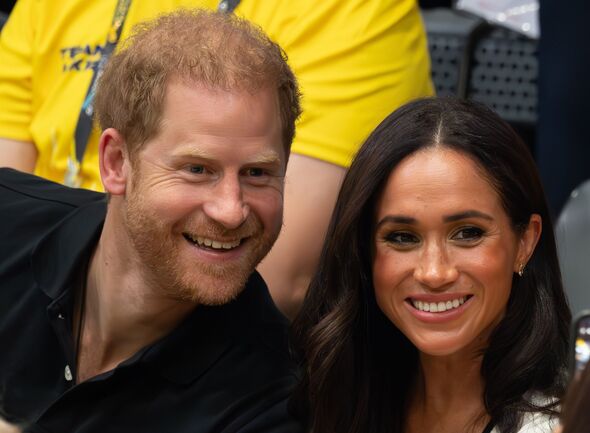In a recent turn of events that has left many shaking their heads, Prince Harry found himself in the spotlight for addressing NATO officials from his luxurious California home.
This unexpected move has ignited a firestorm of reactions, particularly given Harry’s previous departure from royal duties and military service.
The juxtap of his current lifestyle with the values represented by NATO has raised eyebrows and prompted discussions about his motivations.
Harry’s virtual appearance has been met with incredulity, especially considering his history of stepping away from royal responsibilities.
Many viewers are questioning how someone who once held a revered position could now seek to engage with international leaders while remaining comfortably ensconced in his mansion.
It feels as if he’s trying to cling to the remnants of his royal status without the accompanying obligations.
The optics of this situation are striking.
While Harry beamed in from Montecito, dedicated representatives of the Invictus Games—like Dominic Reed and Lord Allen—made the effort to attend in person.
Their commitment to the cause starkly contrasts with Harry’s remote participation, highlighting a significant disconnect between his current lifestyle and the ideals of service that NATO embodies.
Once a symbol of dedication and service, Harry’s focus seems to have shifted dramatically since marrying Meghan Markle.
Critics argue that he appears more interested in maintaining a celebrity status through deals with streaming platforms than honoring the principles he once stood for.
The irony is palpable: a man who once championed service now seemingly uses veterans as a backdrop for his own relevance.
The contrast couldn’t be clearer when looking at his brother, Prince William.
While Harry opts for video calls, William actively engages in humanitarian efforts, such as his work with homelessness.
This divergence in paths has led many to question what Harry truly represents now that he has distanced himself from royal duties.
Social media has had its fair share of commentary on this latest incident, with many users pointing out the absurdity of Harry’s claim to represent any country.
He is no longer a working royal, nor does he reside in the UK.
Yet, he seems determined to retain a semblance of prestige while shunning the responsibilities that come with it.
The notion of him being labeled a “Z-list celebrity” has resonated with many, reinforcing the idea that he has traded royal duty for fleeting fame.
As someone who has followed the royal family closely, it’s disheartening to witness the transformation of a figure once respected for his military service.
Harry now appears to be more focused on leveraging his past for personal gain rather than contributing meaningfully to causes that matter.
The timing of his appearances often coincides with moments when the working royals are receiving positive press, leading to speculation about his intentions.
The Invictus Games, a noble initiative supporting veterans, deserves attention and respect.
However, Harry’s involvement seems overshadowed by his desire to maintain his public image.
The real heroes are the executives and leaders who understand the significance of being present, contrasting sharply with Harry’s choice to remain in California.
This latest virtual address was less about NATO or the veterans and more about keeping Harry’s name in circulation.
The timing raises questions about whether this was a genuine engagement or simply a strategic move to remain relevant in a media landscape that frequently shifts focus.
Critics have rightly pointed out that true service involves more than just virtual appearances.
It requires dedication, presence, and a commitment to the cause.
Harry’s critics emphasize that he cannot expect to enjoy the perks of royalty while renouncing his responsibilities.
This sentiment is echoed in the conversations surrounding his lack of combat experience, which many feel undermines his credibility in discussing military issues.
It’s a poignant reminder of what could have been.
Princess Diana would likely have been proud of her son’s contributions had he remained within the royal fold.
Instead, we’re witnessing a gradual shift toward celebrity culture, where every moment seems crafted for maximum publicity rather than genuine service.
As we reflect on this unfolding narrative, it becomes increasingly clear that the working royals, like William and Catherine, embody what true service looks like.
They remain committed to their roles, engaging with the public and making a tangible impact.
In contrast, Harry’s journey serves as a cautionary tale about the perils of seeking fame without the foundation of responsibility.
So, as we digest this latest chapter in Harry’s life, it’s crucial to remember the essence of real service.
It’s not about the glamour or the headlines; it’s about showing up and making a difference in the lives of others.
The royal family continues to remind us of this core principle, and for that, we can be thankful.
Related Stories

